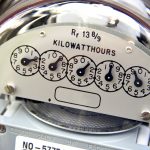Community-Based Sustainable Energy Solutions
Institution: University of Maine
Sponsor: Senator George J. Mitchell Center for Sustainability Solutions
 Affordable, reliable access to energy is essential to human welfare, economic development, and wealth. The way we generate, distribute and use energy has lasting impacts in all aspects of economy and society because nearly everything we make and do requires energy. A fossil fuel-based energy system is unsustainable because fossil fuels are finite, contribute to global warming, contaminate the environment, and pose energy security issues.
Affordable, reliable access to energy is essential to human welfare, economic development, and wealth. The way we generate, distribute and use energy has lasting impacts in all aspects of economy and society because nearly everything we make and do requires energy. A fossil fuel-based energy system is unsustainable because fossil fuels are finite, contribute to global warming, contaminate the environment, and pose energy security issues.
The current energy system allows consumers to use vast amounts of energy in their daily lives without requiring knowledge or understanding of the system supplying it. Community sustainable energy (CSE) emphasizes the importance of meeting growing energy needs of present and future generations while addressing social, environmental, economic and technological challenges. Despite many commercially available SE solutions (solar, wind, biomass, geothermal, water, energy efficiency, conservation), there is a significant gap between availability and adoption.
Traditional energy behavior “interventions” in the US (i.e., regulations, policies, programs, measures, activities, or events that aim to influence behavior) focus on individual choices operating in isolation. Approaches that consider collective action and the complex relationships between individuals, technological information, and social institutions, may be more effective at advancing widespread SE technology diffusion because they build on the power of shared knowledge, trusted networks, and existing communities.
What we’ve learned:
Our initial project funding supported data collection for a new US Community Solar Database and pilot survey of community solar participants in MA, ME, and VT (designed as a model for a national survey). The grant also supported a student-led Bangor/Orono Fall 2015 Community Window Insert Build in collaboration with local community partners, and associated pre- and post-build surveys.
One window insert build was completed in November of 2015. For that build, 315 inserts were completed by 40 volunteers, 30 customers and 10 students working on the service learning project. In addition, a series of surveys analyzing the outcomes with respect to energy savings was done. A follow-on build with students and stakeholders began in the fall of 2016. We have also partnered with the City of Bangor to help conduct research related to their new municipal energy efficiency rebate program EnergySmart Bangor. We are still in the process of analyzing survey results to answer the following research questions.
Current Research Questions:
- What are the economic, environmental, and social costs and benefits of CSE and to whom do these benefits and costs apply?
- What factors (including policy, knowledge sharing, and other) increase net benefits?
- To what extent do decision-makers compare these costs and benefits when evaluating a CSE project?
- Does participation in community energy efficiency lead to participation in community solar and/or vice versa?
Team Leader:
Sharon Klein, Economics, UMaine
Team Members:
- Cindy Isenhour, Anthropology, UMaine
- Caroline Noblet, Economics, UMaine
- Silvia Nittel, Spatial Information Science and Engineering, UMaine
- Dan Dixon, Sustainability Coordinator, UMaine
External Partners:
- Vito Greco, Elevate Energy
- Shubha Jaishankar, National Community Solar Partnership, U.S. Department of Energy
- Suzanne MacDonald, Island Institute
- Stanley Peterson, Old Town Rotary Club
- Stephen Shaw, Rockland Window Dressers
- Eileen Wilkinson, Rockland Window Dressers
